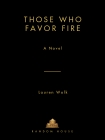Those Who Favor Fire, Lauren Wolk [ereader with dictionary .txt] 📗

- Author: Lauren Wolk
Book online «Those Who Favor Fire, Lauren Wolk [ereader with dictionary .txt] 📗». Author Lauren Wolk
By September the house was finished. Joe spent some time walking around it, picking up stray nails and litter. Then he went home and carried back, pot by pot, the small bits of Belle Haven garden that Rachel had left with him. “Give these last ones to your neighbors,” she’d said. “Make sure Angela gets the lilac bush.” But he’d done no such thing.
Early one morning he borrowed a shovel from Earl and planted the lilac, the roses, the huckleberries, and the columbine where he thought they’d do well, some of them nestled up alongside the house, some at the edge of the trees where they might strengthen and spread.
Then he walked along where the back of the house nudged the woods. When he found a good, sound tree stump, he laid out the tools he’d brought with him and set to work, left a chipmunk to keep watch.
It was dark by the time Joe finished, so he carried the empty pots home and put them in a shed behind the cabin. And then he waited.
He had, indeed, received no word from Rachel—not a single letter—and was, at first, hurt, angry, dismayed. But then he remembered that he himself had been the one to insist she make no promises she couldn’t be sure to keep.
He was glad that he could not write to her. There were things that he wanted to tell her but knew should wait for her return. And there were things he was glad to be keeping from her: that Dolly had died in the spring, that Rusty still woke up screaming as many nights as not, that he himself had begun to feel the urge to start over, somewhere new.
He did not understand his discontent, although he knew how much he missed Rachel and the place where he’d found her. He thought that he had learned how to be alone, unencumbered, settled. He had imagined that leaving Belle Haven, Rachel leaving him, would simply make him stronger. Sadder, perhaps, but stronger. Why then, even in the company of people he loved, even when he was sitting at Angela’s table, laughing, playing cards, Rusty learning how to play the guitar, Angela making soup and bread, the lamplight turning the dark windows to mirrors—why, then, did he feel the blood thinning in his veins?
It had become Joe’s custom, on fair evenings, to sit in the clearing outside his cabin door and watch the day go down, listen to the dwindling noises of the birds and the crescendo of the sounds that belonged to the night: crickets in brisk chorus, awakening owls, small prowlers, and the like.
One evening, opening his door, Joe was met by the sight of such a glorious sky that he nearly dropped to his knees. The sun had set, but the sky was still light and the thin clouds that stretched out across it were pink, orange, and radiant. There were also thunderheads piled up to the south, and these were, in places, gray as smoke, in others a startling white, and the sky behind them was the deepest possible blue, a nameless color, so beautiful it made his heart ache.
Joe walked farther into the clearing with his head tipped back and looked at the sky, watched the clouds moving across it, and trembled with desire to see it whole, to see the sky unbordered by trees. He hurried along the path and out to the lane, slowed by tree roots, reluctant to lower his eyes, searching for a wider space between the trees. He nearly ran toward Rachel’s meadow, but even this broader clearing was not enough. He ran in one direction, then another, but everywhere he turned the trees reached too high. He felt like a lion pacing in a cage. He felt a terrible longing to be lifted straight up into the sky. He heard the thread of a whistle and, turning, saw a formation of ducks flying just above the trees, out across the meadow, black against the sky. To be up there with them, to be unanchored, seemed the greatest thing he could imagine just then. Ian, he thought, must have felt this way: not just once, on a rare September evening, but for all of his life. And to have settled for a life along the land … even more, to have found a way to be happy there, seemed to Joe a nearly impossible accomplishment.
He realized, as he stood in the middle of Rachel’s meadow, that he missed the hill where she had lived in Belle Haven. There, he had stood so much closer to the sky. But it was only now, having left it, that Joe realized fully what he’d had. What Rachel had had, and what she had relinquished.
He knew, as he walked slowly back through the early darkness, that he would wake up in the morning much as he had been before, loving the land, content with the anchors he himself had set. But he had begun





Comments (0)